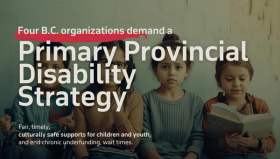The Federation of Community Social Services of BC is a provincial association representing over 155 social services organizations that deliver essential social services throughout B.C. Our members work on the front lines of care, supporting children, youth, families, seniors and individuals navigating complex challenges. With over four decades of collective leadership, we are a trusted, values-driven voice in British Columbia’s social policy landscape.
Altogether better



Together we're shaping a vibrant, sustainable future
Our commitment to Reconciliation
We believe that the decision of Indigenous communities to participate in the social service sector is not ours to dictate. We believe that requiring Indigenous communities to abide by and embody the approaches, practices and policies of dominant cultures continues the legacy of colonialism. We believe that without the wisdom, culture and knowledge of those who were here before us, our communities would be painfully incomplete.
Donate to the FCSSBC Youth Education Bursary
Our Youth Education Bursary assists young people who are or have been in care and want to pursue a career in the field of Human Social Services. Bursaries support students with the financial costs of tuition, books and supplies for post-secondary academic programs.
The Federation of Community Social Services is a registered charity BN: 898839790RR0001








